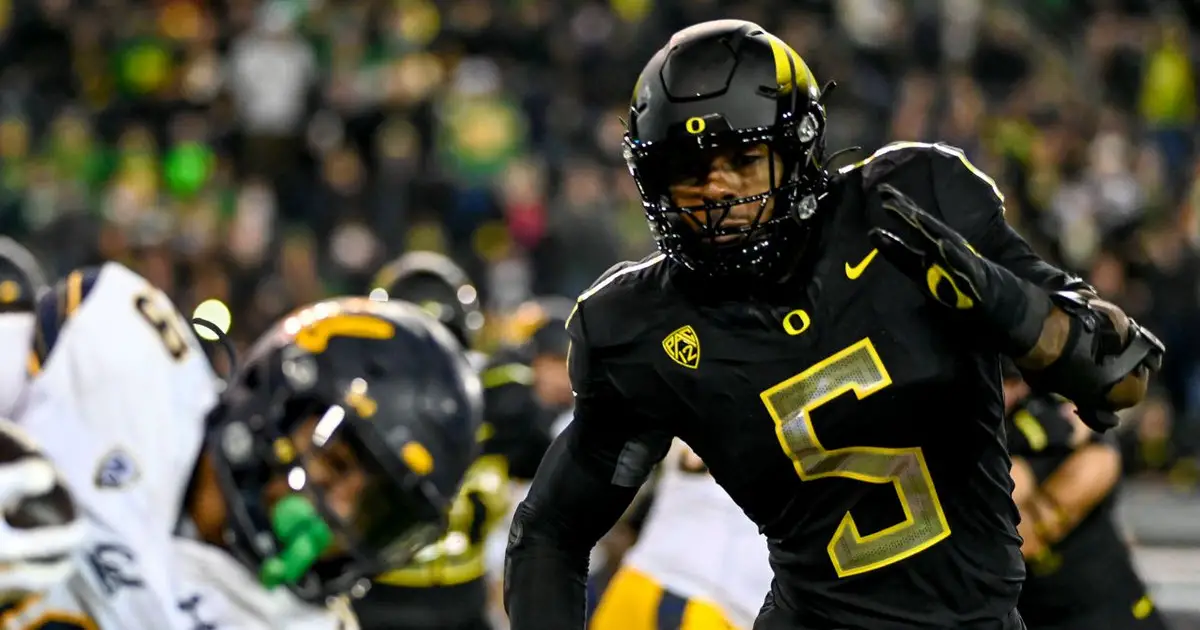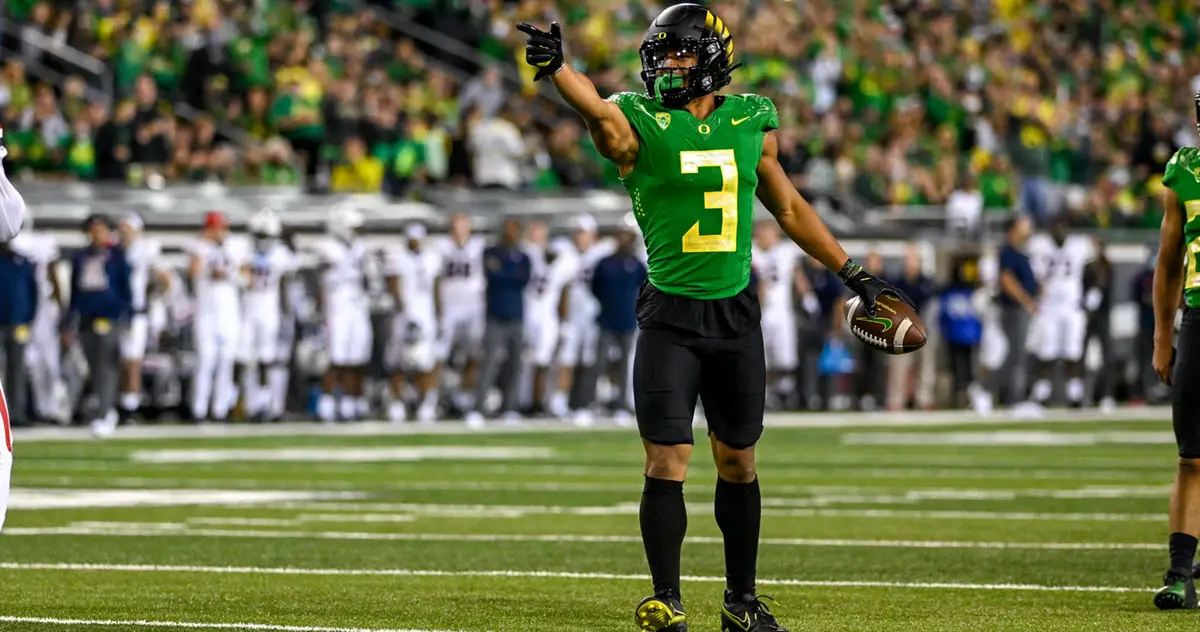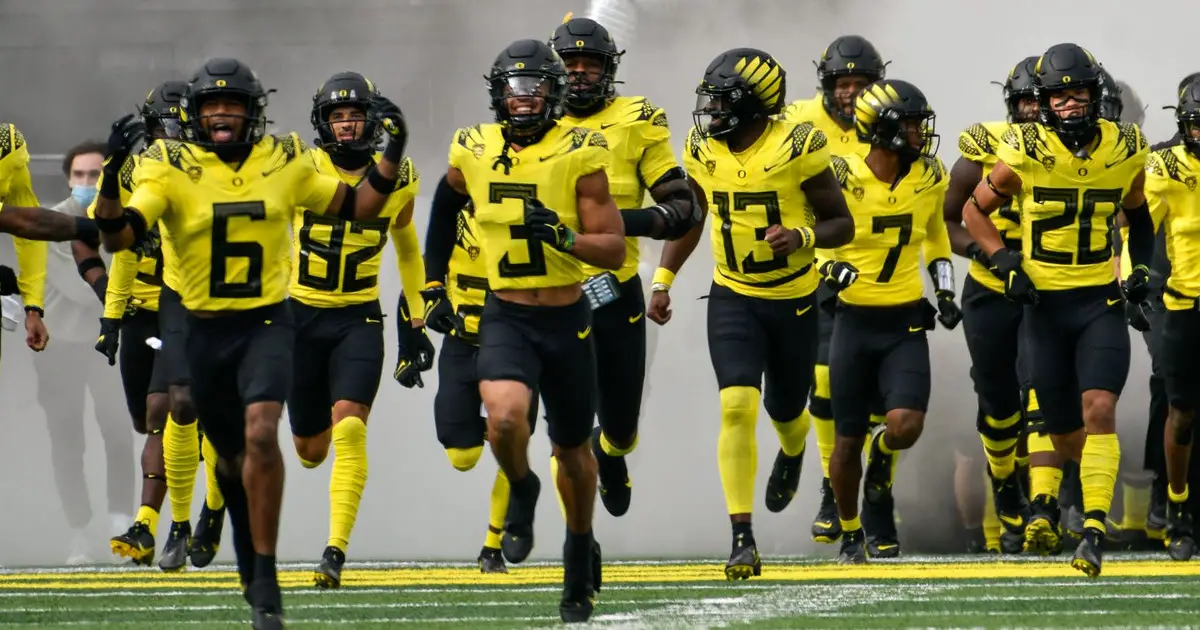NIL has now trickled down to the average Duck fan. With the launch of Eugene NIL Club, and Ducks Rising scheduled to launch later this month, fans are encouraged to donate toward NIL contributions for players. This is basically NIL through crowd sourcing. The rewards for donating include some exclusive digital meetings with players and the feeling that you have helped the Ducks fight back against the heavyweights of NIL.
On the face of it, this feels like the natural expansion of NIL and it is not all that surprising in this day and age where crowd sourcing is all too common. We see YouTube channels direct their viewers to Patreon to help fund their channels and projects. We see Kickstarter, GoFundMe, and Indiegogo help start-up companies launch products. Crowd funding is nothing new, but it is new to College Football.
So what’s the problem with these new collectives?
I am a huge Duck fan; I spend hours pondering our beloved Ducks, and as a proud Duck fan, I wear green and yellow every chance I get.
But contributing toward NIL for players feels wrong for me as a fan. It’s not because I don’t believe players should be paid for their work (and even if I did feel this way, the fact of the matter is that players are going to get paid and we are not going back from that). Football is a full-time job, and even with the the 20 hours per week allotted for practice time during the season, these athletes have serious off-season workouts and film study just to get them ready for Spring and Fall Camp. College Football is serious business.

Kayvon Thibodeaux was able to accumulate over one million dollars in NIL money at Oregon.
But College Football already generates an incomprehensible amount of money. The latest B1G media deal is worth around 8 billion dollars and is worth more than the entirety of the NHL. Each member school in the B1G is looking at a paycheck between 70-100 million dollars per year. Now, Oregon is currently not in the B1G, and may not ever join the B1G — but Oregon is also not the only school that has these fan-based, crowd-funded NIL collectives popping up to help generate more dollars for players.
————————————————————-
Want to read all the Oregon Sports Articles in one place? Check out our new FishDuck Feed for Oregon Sports News and Articles aggregated every day for Duck fans and it is free. Over 50 articles curated in one day recently!
————————————————————-
As the rules stand today, schools are not allow to directly pay players. Beyond that, coaches aren’t really supposed to be in contact with NIL collectives or be involved with these groups. We all know, however, that every coach in the country is connected to his boosters and knows what is going on behind the scenes with NIL dollars. But while conferences pay schools multi-million dollar paychecks every year, the athletes are not allowed to touch any of that money, which leaves boosters and fans to pay the players.
Going through these collectives comes with a risk because they will all take a cut of the money you donate for operating costs and potentially their own profit. Some will take a larger cut than others, but the fact is that the money donated has to go through a third party to get to players, which feels wrong for such a large industry.
But is this really the fans’ responsibility? This isn’t some small YouTube channel that needs help from its fans to survive. These players are a part of a multi-billion dollar industry. Why is it the fans’ responsibility to ensure our players get paid enough so that they don’t just leap into the transfer portal looking for someone else who will pay?

Johnny Johnson was never a big NIL player at Oregon. At least these collectives would ensure he is would have been paid something.
As fans, we already prop up College Football. We fill the stadiums and buy the merchandise. We are the market that enables the conferences to sell themselves to the big-time media companies so they can get paid in the billions of dollars. Without the fans, there is no College Football. So why should we have to give more of our hard-earned money to NIL collectives?
The typical response would be that giving to these NIL collectives is completely optional — which it is — but that still doesn’t change the fact that that we are being asked to support the players in a system that should already do that in a comprehensive and fair way.
I have seen many fellow Duck fans argue that all Oregon fans should donate to these collectives so that we can all “do our part,” but to be honest, should we? Is it really the job of fans to pay Oregon’s players? I don’t think I’ll be giving; will you?
David Marsh
Portland, Oregon
Top Photo By Craig Strobeck

Natalie Liebhaber, the FishDuck.com Volunteer Editor for this article, works in the financial technology industry in SLC, Utah.
Related Articles:
Unbelievable...Same SEC Stuff, Different Day
Why Oregon Football Always Belongs in the National Conversation
The B1G Won the 2026 Coaching Carousel...Big-Time!
Continuity? Lanning's Hiring Success is Put to the Test
Why Whether Dyer Was Down or Not...Doesn't Matter
How to Analyze Football Talent Like a Pro

David Marsh is a high school social studies teacher in Portland, Oregon. As a teacher he is known for telling puns to his students who sometimes laugh out of sympathy, and being both eccentric about history and the Ducks.
David graduated from the University of Oregon in 2012 with Majors in: Medieval Studies, Religious Studies, and Geography. David began following Ducks Football after being in a car accident in 2012; finding football something new and exciting to learn about during this difficult time in his life. Now, he cannot see life without Oregon football.

